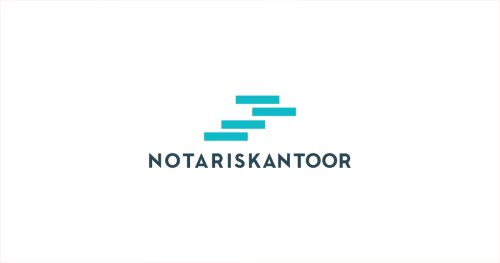Best Tax Lawyers in Hechtel-Eksel
Share your needs with us, get contacted by law firms.
Free. Takes 2 min.
List of the best lawyers in Hechtel-Eksel, Belgium
About Tax Law in Hechtel-Eksel, Belgium
Tax law in Hechtel-Eksel, like the rest of Belgium, is a combination of federal, regional, and municipal rules that dictate how individuals and businesses are taxed. This includes income taxes, property taxes, municipal taxes, and VAT (Value Added Tax), among others. The overall framework is set by national legislation, but there are local nuances specific to Limburg province and the municipality of Hechtel-Eksel. Residents and businesses must comply with tax obligations on various sources of income, ownership, and transactions.
Why You May Need a Lawyer
Dealing with tax matters can be complex, especially when regulations are regularly updated. Common situations where you may require legal help include:
- Receiving a tax notice or audit from the tax authorities
- Challenging or appealing a tax assessment
- Facing penalties or fines for late payment or non-compliance
- Handling inheritance or gift taxes
- Managing tax implications when starting, transferring, or closing a business
- Understanding property taxes when buying, selling, or owning real estate
- Ensuring compliance with both Belgian and international tax obligations
- Tax planning for personal or business finances
- Resolving disputes with local tax offices
- Clarifying eligibility for deductions, exemptions, or rebates
A lawyer can provide expert guidance, help avoid costly mistakes, and represent your interests with authorities.
Local Laws Overview
Taxation in Hechtel-Eksel falls mainly under federal Belgian law, but with significant local elements:
- Personal Income Tax: Residents must declare their worldwide income. Non-residents only declare Belgian-sourced income.
- Municipal Taxes: Hechtel-Eksel can levy additional surcharges on the federal personal income tax rate, known as the gemeentebelasting.
- Property Taxes (Onroerende Voorheffing): Based on the cadastral income of your property, with rates set by the Flemish region plus additional municipal surcharges.
- Business Taxes: Self-employed individuals and companies have specific registration, VAT, and local business tax obligations.
- Inheritance and Gift Taxes: The Flemish tax authority oversees local inheritance and gift taxes, with specific rates and exemptions for family members.
- VAT: Applies to most goods and services. Registration depends on your business activities and turnover.
- Tax Returns and Deadlines: Returns must typically be filed annually, with key dates published by the Belgian tax administration. Digital filing is standard through the MyMinfin platform.
- Audits and Disputes: Tax authorities may initiate checks. Any disputes can be resolved through objection procedures or the courts.
It is important to understand both the federal base and local Hechtel-Eksel additions to ensure full compliance.
Frequently Asked Questions
What taxes do I need to pay as a resident of Hechtel-Eksel?
Residents pay personal income tax, municipal surcharges, property taxes if they own real estate, and possibly other taxes such as waste collection and dog tax depending on local ordinances.
How are municipal taxes determined in Hechtel-Eksel?
Municipal taxes are set annually by the town council. The most common is a percentage surcharge on personal income tax. Check the municipal website or ask the local tax office for the current rates.
What are the deadlines for filing taxes?
The deadline for personal tax returns is usually mid-July for paper forms and later for online submissions. Business taxes and VAT have separate quarterly or annual deadlines.
How can I dispute a tax assessment?
You have the right to file an objection with the tax office within prescribed deadlines, often six months. If still unresolved, you can appeal to the tax court with the help of a lawyer.
Do foreign assets need to be declared?
Yes, Belgian residents must declare most worldwide income and some foreign assets. There are special reporting requirements for foreign bank accounts and properties.
What happens if I pay taxes late?
Late payment results in interest charges and possible fines. In case of persistent non-payment, authorities may initiate collection procedures, including seizure of assets.
How is property tax calculated?
Based on the cadastral income of the property, multiplied by rates set by the Flemish region and increased by local rates set by Hechtel-Eksel.
Do I need a lawyer to handle tax matters?
For simple filings, a lawyer is not mandatory. However, professional guidance is advisable for complex cases, disputes, or when significant sums are involved.
What are some common tax deductions and allowances?
Common deductions include mortgage interest for your main home, childcare costs, pension savings, and certain professional expenses. The list changes, so always verify current options.
Can I get help from the local government for my taxes?
Local tax offices offer general information and can help with forms, but do not give tailored legal advice. For complex matters, consult a licensed tax lawyer or advisor.
Additional Resources
If you need further information or assistance related to tax laws in Hechtel-Eksel, the following can be helpful:
- Federal Public Service Finance (FOD Financiën/SPF Finances): National authority for tax information and online services
- Flemish Tax Authority (Vlaamse Belastingdienst): Oversees regional taxes such as property and inheritance taxes
- Gemeente Hechtel-Eksel: Local municipality office for questions on municipal taxes and surcharges
- Order of Flemish Bars (Orde van Vlaamse Balies): For finding qualified tax lawyers
- Professional accountants or tax advisors: For tax returns, business start-up, and compliance guidance
- Legal aid services: For those with limited means, legal aid may be available
Next Steps
If you need legal assistance with tax matters in Hechtel-Eksel:
- Gather all relevant documents, such as tax assessments, correspondence, and identification
- Clarify your specific issue or the assistance you need
- Contact a qualified local tax lawyer or advisor experienced in Belgian and Flemish tax law
- If unsure where to find a lawyer, consult the Order of Flemish Bars or ask the municipality for recommendations
- Prepare questions in advance to make the most of your consultation
- If facing a deadline (for example, to contest an assessment), act promptly
Tax law can be complex and the consequences of mistakes significant. Professional guidance ensures your rights are protected and obligations are met appropriately.
Lawzana helps you find the best lawyers and law firms in Hechtel-Eksel through a curated and pre-screened list of qualified legal professionals. Our platform offers rankings and detailed profiles of attorneys and law firms, allowing you to compare based on practice areas, including Tax, experience, and client feedback.
Each profile includes a description of the firm's areas of practice, client reviews, team members and partners, year of establishment, spoken languages, office locations, contact information, social media presence, and any published articles or resources. Most firms on our platform speak English and are experienced in both local and international legal matters.
Get a quote from top-rated law firms in Hechtel-Eksel, Belgium — quickly, securely, and without unnecessary hassle.
Disclaimer:
The information provided on this page is for general informational purposes only and does not constitute legal advice. While we strive to ensure the accuracy and relevance of the content, legal information may change over time, and interpretations of the law can vary. You should always consult with a qualified legal professional for advice specific to your situation.
We disclaim all liability for actions taken or not taken based on the content of this page. If you believe any information is incorrect or outdated, please contact us, and we will review and update it where appropriate.









